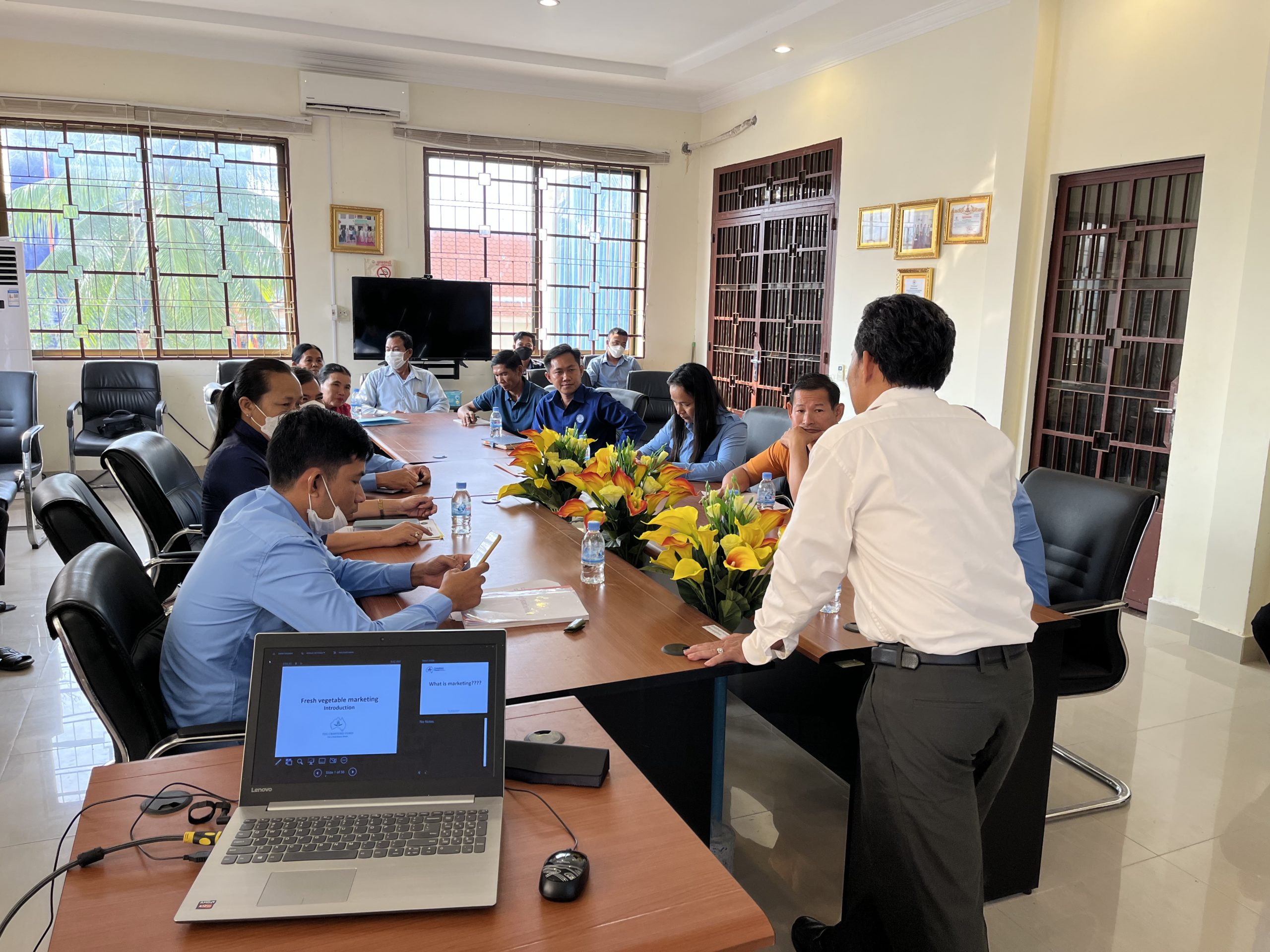

Delivering agribusiness marketing training in Cambodia
May 2, 2023

In an innovative arrangement with the Cambodian Ministry of Industry, Science, Technology and Innovation (MISTI), financial support from the WA State Committee of the Crawford Fund, enabled Adjunct Professor Peter J. Batt from the University of Western Australia to deliver an intensive short course on agribusiness marketing in Svay Reing, Cambodia.
MISTI has identified agri-food innovation, food processing, food science and food safety as priority areas for rural development.
For this intensive short course on fresh vegetable marketing, 20 participants were registered, including nine women. The participants were selected by the partner institution – the Department of Industry, Science, Technology and Innovation in Svay Reing Province and included technical staff, members from the SAK Community organic vegetable cooperative, small business owners, and a government representative.
Over the four days, participants were introduced to the marketing concept, business-to-business marketing, product quality, pricing strategies, distribution and logistics and the role of collaborative marketing groups in linking smallholder farmers to markets. They also visited the SAK Community, a cooperative engaged in the production and marketing of organic vegetables to various retailers in Phnom Penh.
“While most of the participants had some prior understanding of marketing, the course reinforced the importance of marketing, encouraging participants to first identify their customers’ needs, how well the product they were offering met those needs, and what participants needed to do to adapt or to differentiate either their product or the service that they offered to better meet their customers’ needs,” said Peter.
“By the conclusion of the course, most participants clearly understood the concept of product quality and how product quality differed depending on how the customer intended to use it and how quality varied with the season,” he said.
“The course was also able to break down some long-term misconceptions about the role of the market intermediaries, with most participants gaining a much greater understanding of the need to work constructively with middlemen and to build enduring long-term relationships.”
“Another key focus of the training program was the importance of keeping accurate records of all production costs, including fixed costs, variable costs, the economies of scale, marketing costs and labour to ensure the long-term viability of small rural enterprises.”
“The experiences of the SAK Community, both positive and negative, were extremely beneficial in reinforcing some of the key constructs around quality, relationships with buyers, prices and distribution,” he concluded.




